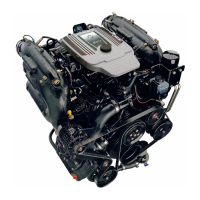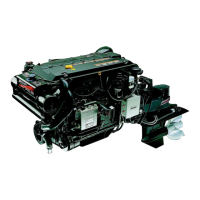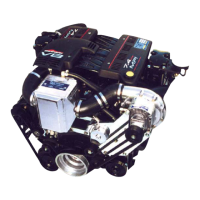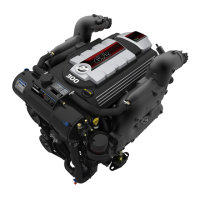Fuel Requirements
!
WARNING
Failure to comply with regulations can result in injury from fire or explosion. Electrical system components on this engine are
not rated as external ignition–protected (EIP). Do not store or use gasoline on boats equipped with these engines, unless
provisions have been made to exclude gasoline vapors from the engine compartment (REF: 33 CFR).
!
WARNING
Fuel leakage is a fire or explosion hazard, which can cause serious injury or death. Periodically inspect all fuel system
components for leaks, softening, hardening, swelling, or corrosion, particularly after storage. Any sign of leakage or
deterioration requires replacement before further engine operation.
!
WARNING
This engine requires diesel fuel. Mixing gasoline, gasohol, or alcohol and diesel fuel can cause serious injury or death due to
fire or explosion. Never mix gasoline, gasohol, or alcohol with diesel fuel.
IMPORTANT: Use of improper or water‑contaminated diesel fuel can seriously damage your engine. Use of improper fuel is
considered misuse of the engine, and damage caused thereby will not be covered by the warranty.
Mercury 6.7L diesel engines require ASTM #2 ULSD or ECE EN 590. Key points are:
• Sulphur: less than 15 ppm.
• Cetane number: minimum of 40. A higher number is preferred.
• Bio content: maximum of 7%.
Use of fuel containing biodiesel may result in fuel system degradation such as rapid saturation of water traps in the fuel system,
fuel filter clogging, hard starting, excessive smoke, injection nozzle clogging, and the need for increased oil change intervals.
The cetane number is a measure of the ignition quality of diesel fuel. Increasing the cetane number will not improve overall
engine performance, but it may be necessary to raise the cetane rating for low‑temperature or high‑altitude use. A lower cetane
number could cause hard starting and slower warm‑up, and could increase engine noise and exhaust emissions.
NOTE: If the engine suddenly becomes noisy after a fill‑up, you possibly received substandard fuel with a low cetane rating.
On engines that use high sulphur content diesel fuel, this will greatly increase:
• Corrosion on metal parts
• Deterioration of elastomer and plastic parts
• Excessive wear of internal engine parts, particularly bearings, and corrosion and extensive damage to other engine parts
• Difficulty starting and operating the engine
Diesel Fuel in Cold Weather
Unaltered diesel fuels thicken and gel in cold temperatures unless treated. Virtually all diesel fuels are climatized to allow their
use in the particular region for that time of the year. If it becomes necessary to further treat diesel fuel, it is the owner/operator's
responsibility to add a commercial standard brand of antigel diesel fuel additive, following that product's directions.
A fuel heating system may also be added to the boat fuel delivery system. Typically, this heater is added to the fuel prefilter that
is mounted in the engine compartment, but separate and upstream of the engine. Installing the heater at this location prepares
the fuel before it reaches the engines.
Antifreeze/Coolant
Antifreeze Specification
ASTM D4985 or ASTM D6210
Tube Ref No. Description Where Used Part No.
Heavy Duty Diesel Engine Coolant
Antifreeze
Cooling system 8M0124421
Diesel engines are high‑compression engines that operate at higher temperatures than typical internal combustion engines.
Therefore, the closed cooling system and engine, including related cooling passages, must remain as clean as possible to
provide adequate engine cooling. To ensure proper cooling, we recommend filling the closed cooling section of the cooling
system with a low silicate formula of ethylene glycol antifreeze in a solution with deionized water. Common tap water or
softened water contains unwanted minerals that can leave large deposits in the system that restrict the cooling system
efficiency. A low silicate formula prevents the antifreeze from separating and forming a silicate gelatin. This gelatin can block
passages in the engine and heat exchanger, causing the engine to overheat.
Section 4 - Specifications
Page 38 90-8M0117076 eng FEBRUARY 2018
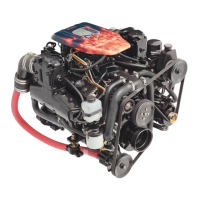
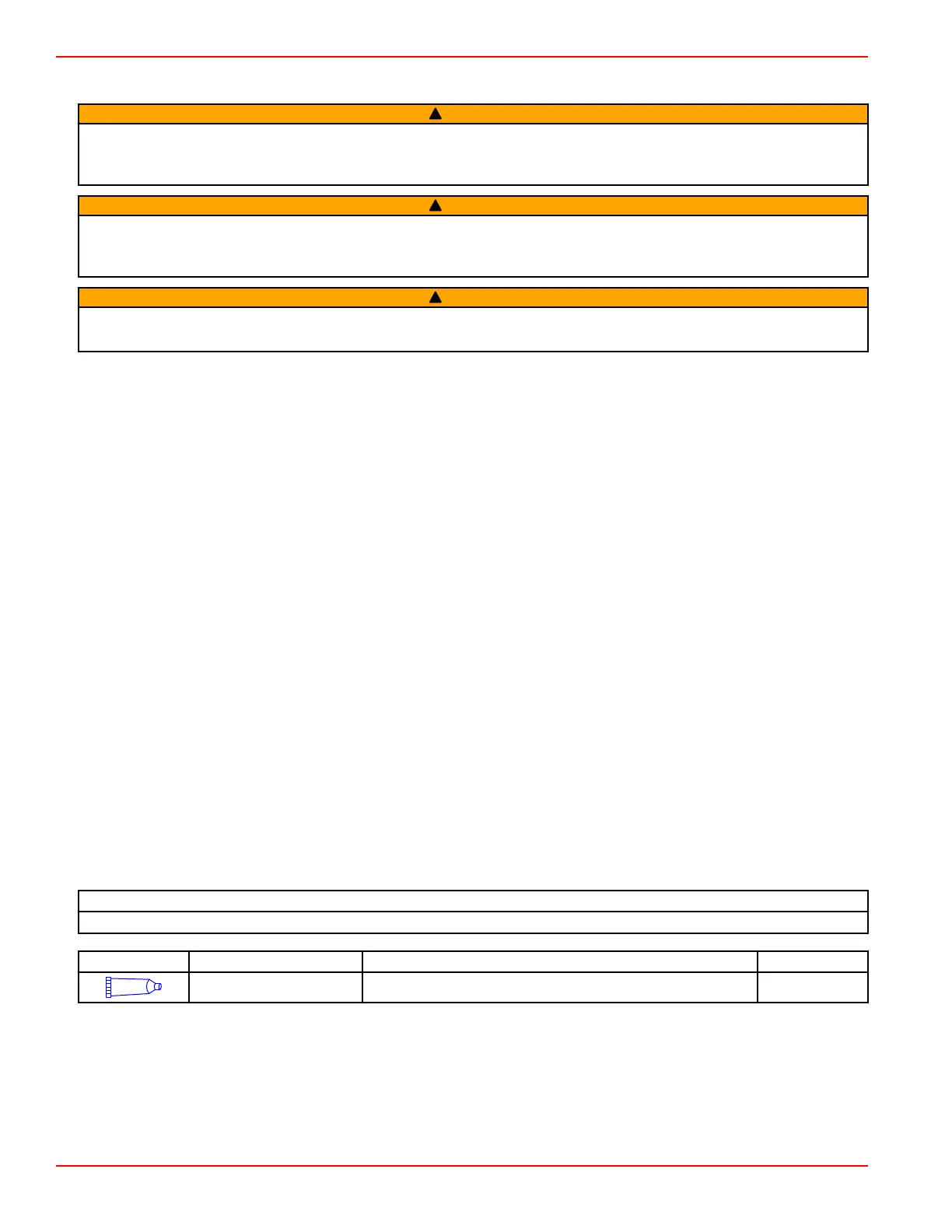